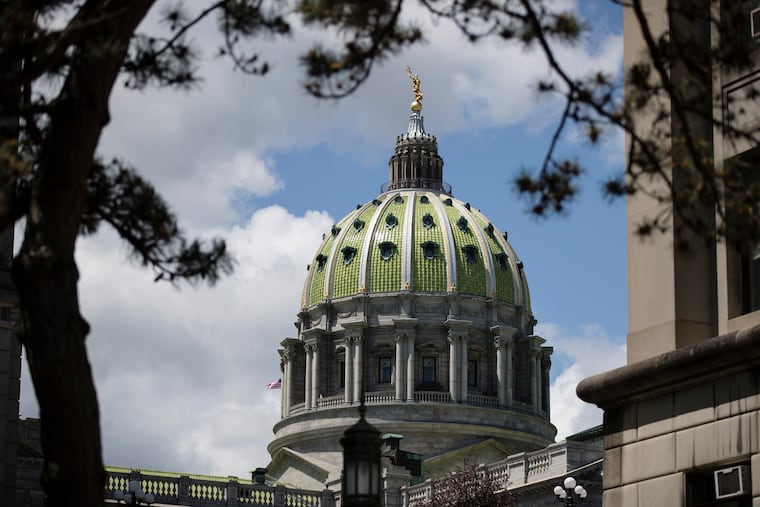Pennsylvania Gov. Tom Wolf makes a deal with GOP to move minimum wage bill in Senate
The state’s minimum wage has been $7.25 an hour, the federal “floor” rate, for 12 years.

A proposal to begin raising the minimum wage in Pennsylvania in four separate steps, bringing it to $9.50 per hour by January 1, 2022, has passed a Senate committee and could get a floor vote in that chamber before the end of the week.
The proposal would represent the first change in the state’s minimum wage here since 2009, since the federal government set the wage nationally at $7.25 per hour.
Under the terms of Senate Bill 79, which received an 11-0 vote in the committee, the Pennsylvania wage would move to $8 an hour on July 1, 2020, $8.50 on Jan. 1, 2021, $9 on July 1, 2021, and then take the final step to $9.50 on Jan. 1, 2022.
It has the backing of Gov. Tom Wolf, who appeared before Senate Democrats earlier Monday to urge their support, and appears headed to probable passage in the Senate. The bill would then have to go to the state House, where prospects are less certain.
Earlier this year, Wolf proposed an immediate hike in Pennsylvania’s wage to $12 per hour, followed by six 50-cent per hour increments that would take it to $15 per hour by 2025.
But the new proposal — the product of extended, closed-door discussions between Senate leaders and senior Wolf staffers — is also a considerable increase in a floor wage rate that applies to something more than 300,000 workers across the state now, most of them part time.
That is the only reason that Sen. Christine Tartaglione, D-Philadelphia and the ranking Democrat on the Senate Labor & Industry Committee, urged support for the bill.
“I’m not happy about $9.50,” Tartaglione said during Monday’s meeting. “But I can’t say no to those individuals making $7.25 an hour.”
The proposal does not include other Democrat desires, like linking the state’s minimum wage to a future inflation-based index so it keeps pace with changes in the cost-of-living, or elimination of the special exemption from the pay standard for waiters, waitresses and others that work in tip-based businesses like food service.
But Sen. Camera Bartolotta, R-Washington County and the chair of the Senate Labor & Industry Committee, noted that the increase to $9.50 in itself already exceeds growth in inflation since 2009.
“So I think it’s been long enough, and I think that people feel comfortable in raising the minimum, but just not to an astronomical amount where it would disrupt small businesses across Pennsylvania. I think this is a moderate, responsible first step.”
In negotiations with the GOP, Wolf agreed to abandon a regulatory proposal that would have expanded time-and-a-half overtime pay eligibility to an estimated 82,000 salaried workers who earn above a minimum federal threshold when they work more than 40 hours.
That salaried overtime threshold is already rising to almost $36,000 on Jan. 1. Wolf wanted to re-set it to $45,500 by 2022.